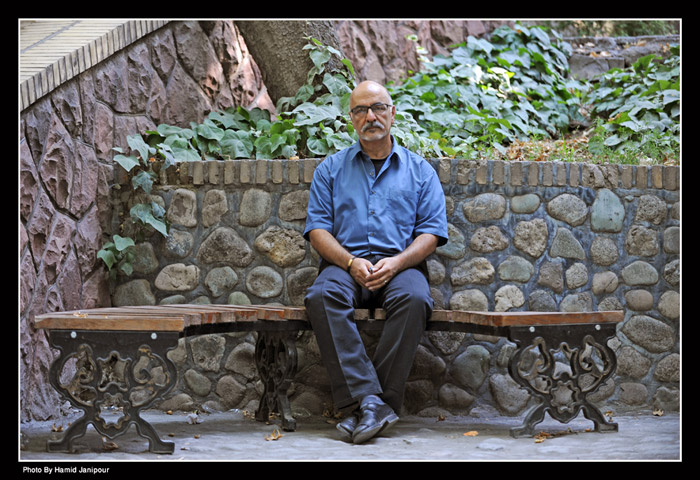If you could have been born in a culture other than your own, which would you have chosen? Why?
By no means can I think about it! Never!
Who is your favorite fictional character of all time?
There are many. Mainly the characters that are more similar to myself in the ways they live and think.
Who was your first favorite writer, and how old were you when you discovered him or her?
Perhaps in my teens, when I was 13 or 14, my favorite writers were John Steinbeck, Tennessee Williams, Antoine de Saint-Exupéry, Ebrahim Golestan, Forough Farrokhzad, and Jalal Al-e-Ahmad.
What is your favorite word in any language? What word do you find most difficult to translate?
For me, language in general – both Farsi and German – is a living being. A friend and a feud. It’s my colleague in thinking and writing. I cannot say which part of a human being that I love is better – her hands or her eyes – and neither can I say it about words. I have thought a lot about it before, but never came to a conclusion. I face the totality of what is called language; I either fight with it or compromise.
What five books would you want if you were stranded on a desert island?
If I have read the books, they will be of no use any more. If haven’t read them, then I’ll have no idea which ones are better. I prefer to keep the good memory of my favorite books with me, review the lines I love any time I wish. For instance, parts and moments from One Hundred Years of Solitude (Gabriel García Márquez), Le Petit Prince (Antoine de Saint-Exupéry), Le Rouge et le Noir (Stendhal), Alice (Judith Hermann), Agnes (Peter Stamm), Der Richter und sein Henker (Friedrich Dürrenmatt), history by Abul-Fazl Bayhaqī, Rumi’s Dīvān-e Šhams, and my own books!
Which under-translated author do you think deserves wider worldwide recognition?
I have recently done an ordered translation for a job out of my area of expertise. I translated Aeschylus’s tragic trilogy of Oresteia from German to Farsi, and what a brave new world I had been unaware of! Instead of the under-translated writers, I prefer to read fine and precise translations of the well-known (unfortunately Persian translations are not generally satisfactory) writers, from Greek and French to Russian and British classics, to renowned 20th-century writers like Hemingway, Woolf, Alice Munro, Faulkner, and others.
Do you have a translation philosophy that guides your work?
Translation for me is like balancing a weighing scale. That is, both scales should be balanced by gradually adding and removing little masses from the pans until both pans weigh equally when I am done with the translation.
Which of the translations that you’ve worked on was most challenging? Why?
The plays of Bertolt Brecht, as I had to find a solution for the language and poetic diction of Brecht. I was also emotionally pressed when translating Peter Stamm’s Agnes and Judith Hermann’s Alice.
How did you learn your foreign language? How did you begin working as a literary translator?
After graduating from high school, I travelled to Germany to continue my studies, and there I learnt German. Language played a major role, as I mainly studied human sciences. Years later, I received the Goethe-Institut’s German Language Diploma in Munich. I started translating while I was a university student in Germany. My debut translation was a play by Brecht.
If you weren’t a translator, what profession would you like to have tried?
I have always been a translator in addition to other professions: I have been a university professor, I’ve worked at the National Broadcasting Organization, I’ve worked at the German embassy, and been a translator!
***
Mahmoud Hosseini Zad is the most significant Persian translator of contemporary German-language literature. Following studies in Germany in the late 1960s, he was a lecturer of German language and literature in Tehran. He translated Brecht, as well as novels by Dürrenmatt, into Persian. Since 2000, Mahmoud Hosseini Zad has mainly translated contemporary German literature. Due to his efforts in particular, authors such as Judith Hermann, lngo Schulze, Uwe Timm, Peter Stamm, and Julia Franck are accessible to Iranian readers. Many of his translations have received prizes and have been published in multiple editions (extraordinary in the Iranian book market). In lectures and readings, he often discusses contemporary German-language films and plays. He is also a writer and has published three collections of short stories that are being translated into English.
(Translator biography thanks to Goethe Institut.)

